
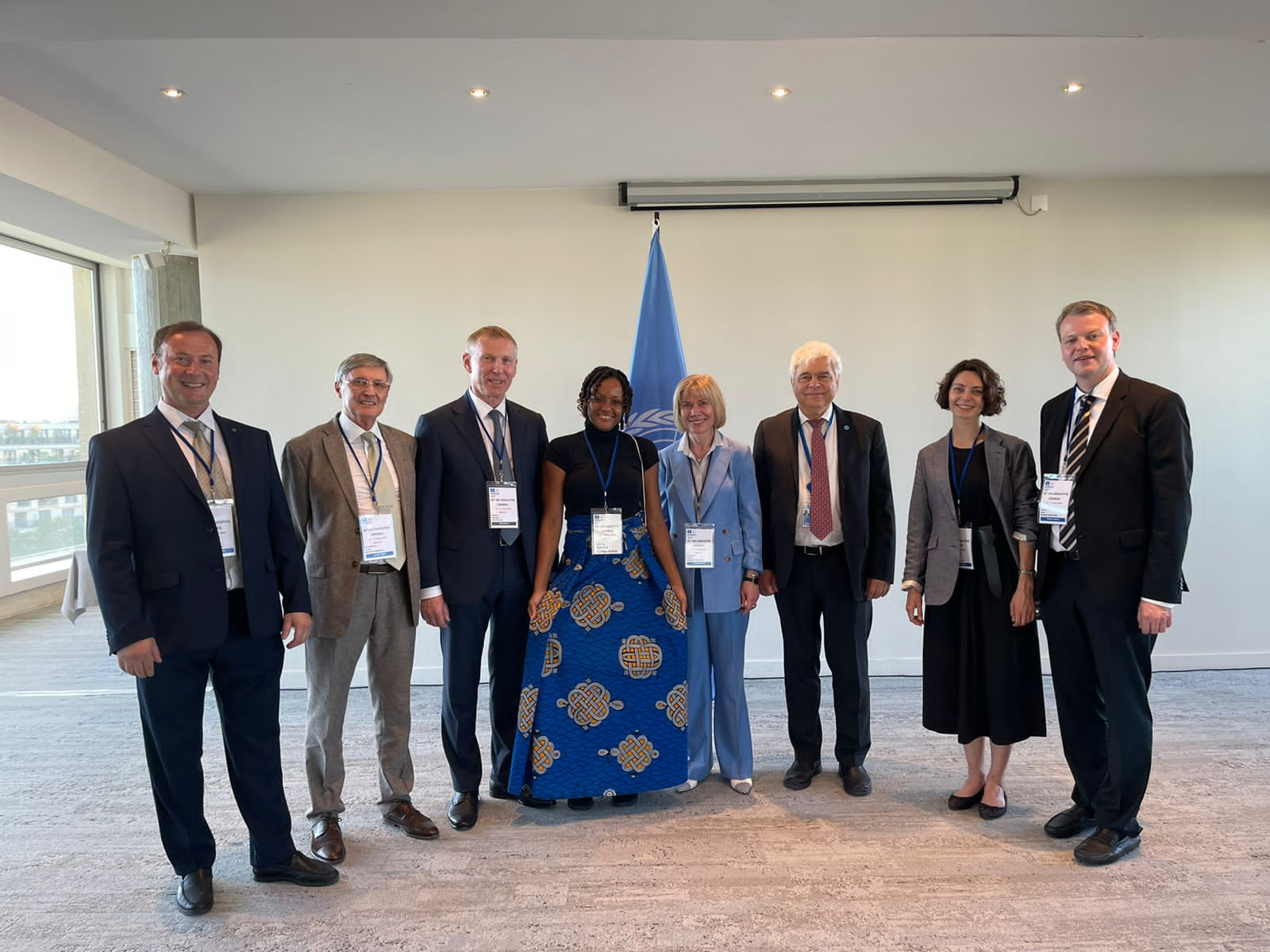
The 55th session of the Executive Board of the Intergovernmental Oceanographic Commission of UNESCO (https://oceanexpert.org/event/3534 ) was held at UNESCO Headquarters. The participating countries discussed the priority issues related to the UN Decade of Ocean Science for Sustainable Development (2021-2030) and spoke about the goals achieved within its framework.
The event was attended by a delegation of the Russian Federation. Our country was represented by the Chairman of the Public Council at Roshydromet (the Russian Federal Service for Hydrometeorology and Environmental Monitoring), Advisor to the Director of the Federal State Budgetary Institution "GOIN" Vadim Petrov, Deputy Director of the Department for Coordinating the Activities of Scientific Organizations of the Ministry of Education and Science of Russia Natalia Golubeva, Assistant to the President of the National Research Center "Kurchatov Institute" Alexander Frolov, Head of the Laboratory for the Interaction of the Ocean with Land Waters and anthropogenic processes of the Institute of Oceanology. P.P. Shirshov RAS Petr Zavialov and others.
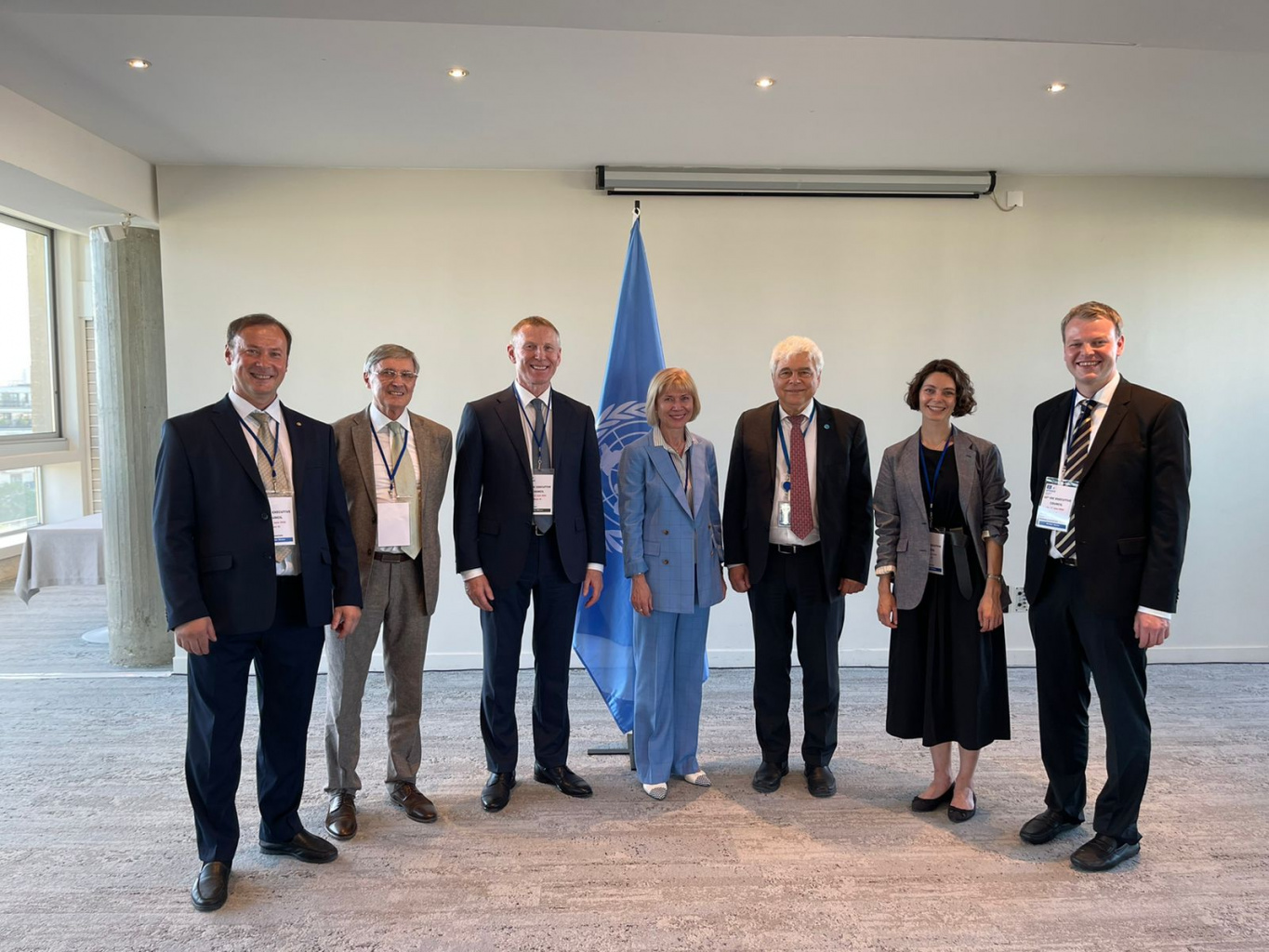
The participants of the event paid special attention to the issue of linking the programs of the Intergovernmental Oceanographic Commission with the goals and objectives of the UN Decade of Ocean Sciences for Sustainable Development (2021-2030). (https://ioc.unesco.org/ocean-decade)
The Russian delegation told the participants about the ongoing events in the country in the interests of the Decade of Marine Research, the work to build capacity in the field of maritime activities, such as "Floating Universities" and training in maritime specialties in the country's universities, and also reported on the preparation of a scientific and practical conference with an international participation of "Russia in the UN Decade of Ocean Sciences". (https://oceans-and-we.ru/)
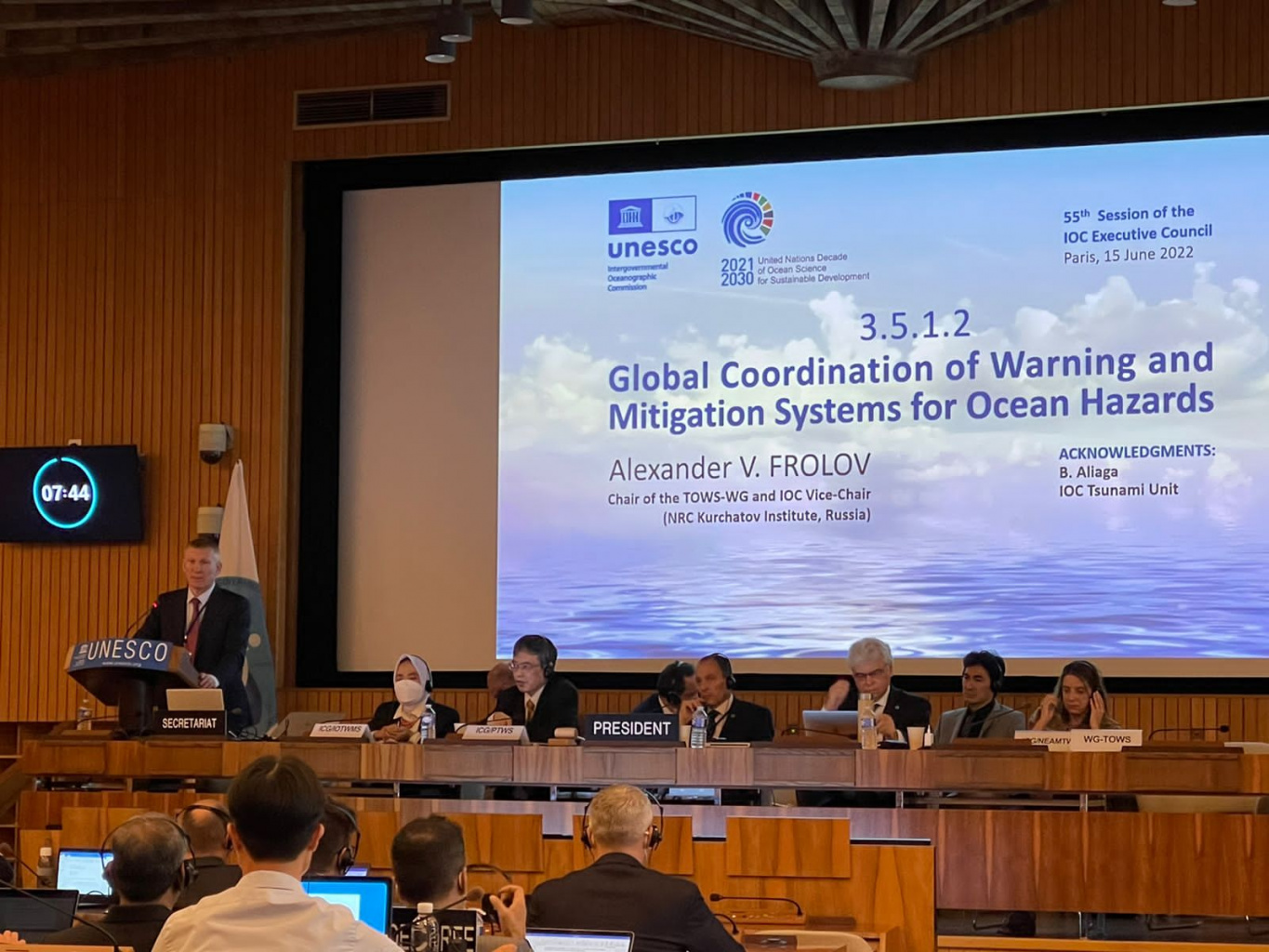
“The proclamation by the United Nations General Assembly of the Decade of Ocean Sciences for Sustainable Development 2021-2030 is both a high-level recognition of the critical societal role of ocean science and a unique opportunity for the ocean sciences to move beyond their boundaries and offer society new and transformative solutions for the conservation and sustainable use of the world's oceans and marine resources,” emphasizes Vadim Petrov.
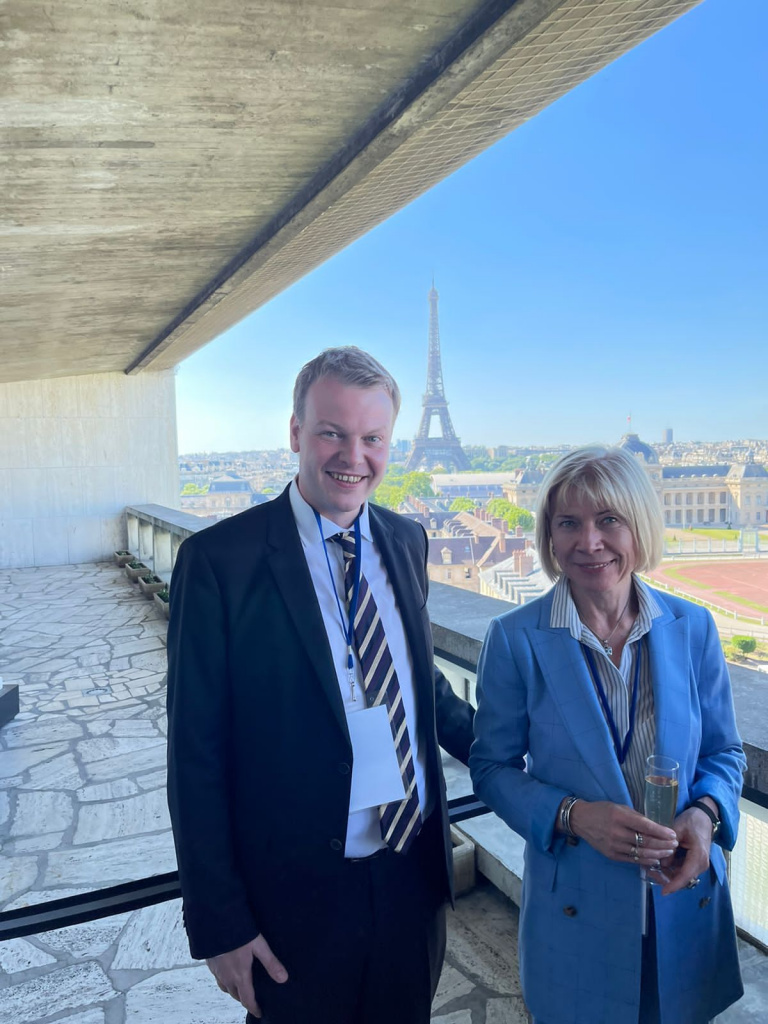
“Russia's role in the development of ocean science is unique. Russia is the only state in the world whose shores are washed by 12 seas, as well as one sea-lake. They belong to three oceans at once: the Pacific, the Arctic and the Atlantic. Our country is distinguished by the record-breaking sea area in the world,” he added.
The Executive Council also discussed “Warning and mitigation systems for hazardous oceanic phenomena”. The participants noted that significant progress had been made in this area, with the expansion of sea level and seismic observation networks, the production of new tsunami information products and maps of potentially flood-prone coastal areas.
All programs and activities coordinated by the Commission are aligned with the objectives of the Decade, finding their own unique way to contribute to what is meant to be “a new social contract for oceanography”, said Vladimir Ryabinin, UNESCO IOC Executive Secretary.
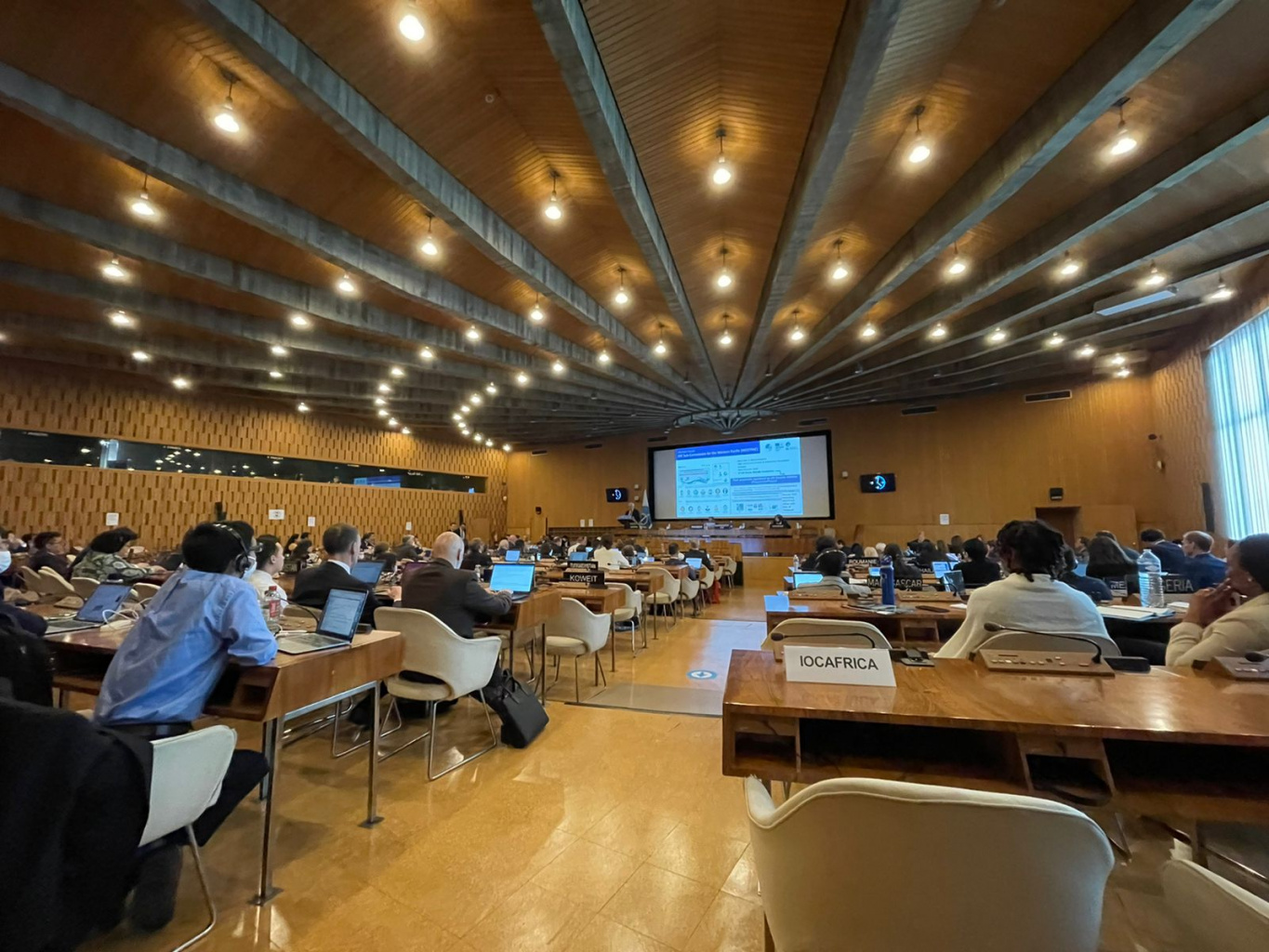
Working to achieve the 2030 Agenda and the Sustainable Development Goals, in particular SDG 14, the ocean target, has made the Commission more visible to the United Nations system and the general public. In particular, there has been a significant evolution in the development of two indicators for SDG 14, for which the IOC plays the role of the “UN custodian agency”, helping countries to monitor and report on progress. Indicators of ocean acidification and countries' spending on marine research are now recognized as conceptually sound and ready to be used for data collection worldwide.
